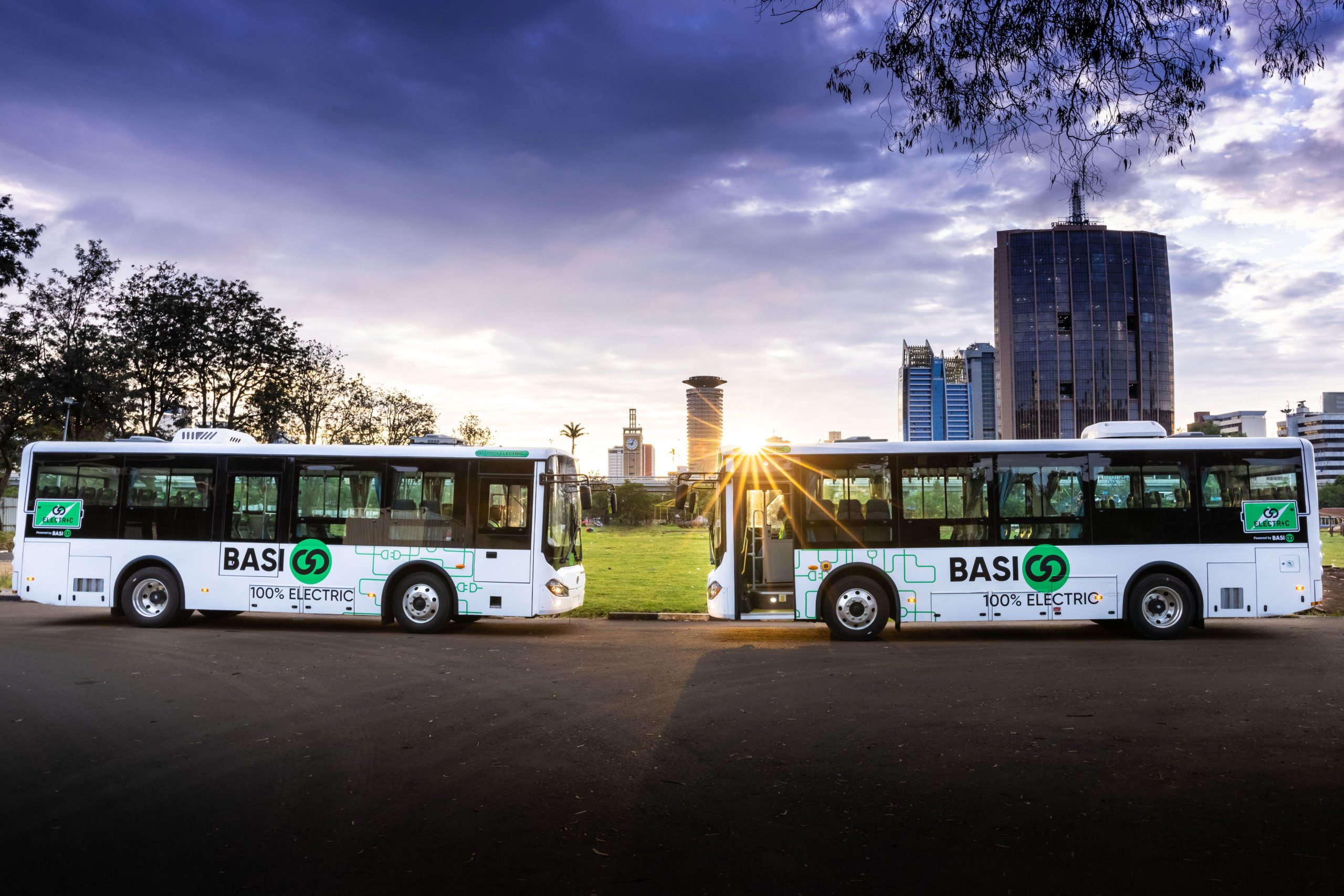BasiGo raised nearly $11 million in 2022. It has since expanded to Rwanda.
BasiGo, an electric bus company with operations in Kenya and Rwanda has announced $5 million in debt funding from the British International Investment (BII), the UK’s development finance institution and impact investor. The $5 million is borrowed money, and unlike equity funding, where companies give away ownership in exchange for capital, debt funding involves borrowing money that needs to be repaid. This means that BasiGo will repay BII the sum on agreed-upon terms.
The funds will be used to scale electric bus assembly in Kenya as the company races to deliver 100 buses in the country. So far, BasiGo has 19 buses on Nairobi streets, which are run by multiple matatu (privately-owned mini-buses used for public transport) companies.
Jonathan Green, co-founder, and chief financial officer of BasiGo, said: “Because electric buses in Kenya are powered by the country’s abundance of renewable energy, electrification of public transport in Kenya holds transformative potential.”
BasiGo offers its buses to matatu companies based on its pay-as-you-drive model. Customers have an option to buy an electric bus without a battery for a lower upfront cost. However, they can opt for a pay-as-you-drive subscription, which covers the battery lease. This subscription also provides perks like free charging at BasiGo’s stations and maintenance. The K6 electric bus costs $35,600 initially, and the subscription is $0.14 per kilometre.
In 2022, BasiGo raised nearly $11 million. After three months of launching in Kenya, it secured $4.3 million in seed funding, with Novastar Ventures leading the round. This funding was supported by various investors, including Moxxie Ventures, Nimble Partners, Spring Ventures, Climate Capital, and Third Derivative, with $930,000 raised in a pre-seed round in late 2021. Then, in November 2022, BasiGo raised $6.6 million in equity funding, with Novastar, Mobility54, and Trucks.vc jointly leading the way.
In November 2023, BasiGo received a $1.5 million grant from the United States Agency for International Development (USAID) to support its recently launched pilot initiative in Kigali, Rwanda.





















